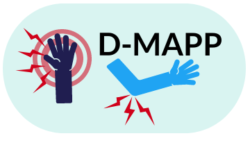Current Projects
Virtual Knee School
Development of a Virtual Knee School 
This research study is focused on developing a new website, the ‘Virtual Knee School’, for patients waiting for total knee replacement surgery. The website provides information and an exercise plan to help patients manage their knee symptoms, understand what to expect and get fitter before their surgery. This could help patients recover better after surgery.
The website has been developed based on previous research, theory (ideas about what affects people’s behaviour) and input from patients and professionals. The current stage of the study involves patients reviewing the website and sharing their views of it. The feedback provided by patients will be used to gradually improve the website.
This study is being funded by the National Institute for Health Research (ICA-CDRF-2018-04-ST2-006)
E-rehab for knee pain
Evaluation of electronic-rehabilitation programmes for chronic knee pain 
The overall aim of this study is to evaluate the feasibility and acceptability of two electronic rehabilitation (e-rehab) programmes called ‘My Knee UK’ and ‘Group E-Rehab’. The participants, who are adults aged 45 and over with chronic knee pain and access to the Internet, are randomly assigned to either one of the two e-rehab programmes or to a control group, which is ‘usual care/management’.
My Knee UK’ is a home web-based rehabilitation programme where participants have access to a website containing a 12-week exercise programme (with videos and written instructions), and information about self-managing their knee pain.
The ‘Group E-Rehab’ intervention is an Internet-delivered physiotherapist-prescribed home exercise programme. This is also a 12-week programme but has 7 group exercise classes conducted via a videoconferencing platform (e.g. Skype/Zoom), by physiotherapists who have been specially trained to deliver it. Group E-Rehab participants also have access to interact information about self-managing their knee pain, which they access via the Internet.
The feasibility and acceptability of these interventions will be explored using data collected through questionnaires and interviews. The study will assess the potential use of the e-rehab programmes by physiotherapists in community care settings with a view to subsequently conducting a larger trial.
D-MAPP Study
Digital- My Arm Pain Programme 
The Digital – My Arm Pain Programme (D-MAPP) is a project led by a team of researchers at the University of Leeds. They are looking to develop a website to support people living with painful conditions of the elbow, forearm, wrist or hand, such as hand or wrist osteoarthritis, carpal tunnel syndrome and tennis elbow.
The project involves a number of stages which will focus on designing and testing the D-MAPP website. The D-MAPP website will provide self-management advice and exercises to support people's day-to-day management of these conditions.
A wide variety of experts will be involved throughout the project and will help decide exactly what is on the D-MAPP website and how it is presented. These experts will include a range of people living with these painful conditions of the elbow, forearm, wrist or hand, and health professionals (such as consultants, GPs, physiotherapists and occupational therapists) with experience in managing these conditions.
The website's content will be chosen through a survey study, focus groups (small group discussions) and interviews with these experts. They will then support the researchers in designing the final website through an ‘experience-based co-design process’. Once it is finalised, the D-MAPP website will be tested out on a larger scale to see if it works well in practice and can make a difference to people living with these conditions.
The project will be commencing recruitment shortly and will be running over the next 5 years. If you would like any further information, please contact a member of the D-MAPP research team: Lucy Brading, Research Fellow (l.m.brading@leeds.ac.uk) Kathleen Kane, Research Assistant (k.kane@leeds.ac.uk)
